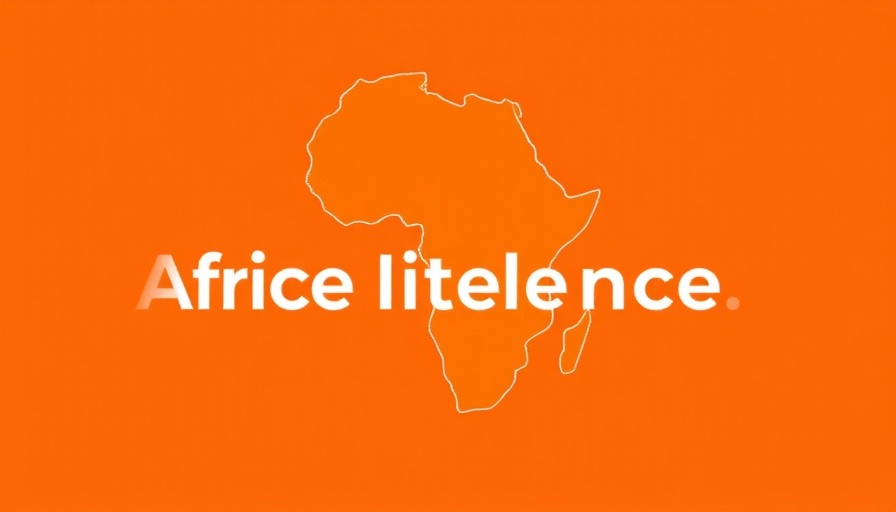
Why Ouattara's €600 Million Bond Issue Matters for Ivory Coast
The Ivorian government, under President Alassane Ouattara, is set to embark on a significant financial endeavor aimed at raising €600 million through sub-regional markets. This planned bond issuance comes at a crucial time when fiscal pressures from both the treasury and creditors demand swift action. It reflects the broader economic strategy of promoting growth and stabilizing the national economy in the wake of recent challenges.
The Economic Landscape: Challenges and Opportunities
Ivory Coast, a vital player in West Africa, has faced a rollercoaster of economic conditions, particularly in the wake of civil unrest and the ongoing repercussions of global economic fluctuations. With expectations of increased cocoa production propelling projected growth rates upwards of 9%, the nation is strategically looking to bolster its financial foothold. Much of the agricultural resilience, especially in cocoa which constitutes a significant export, is anticipated to be a strong underpinning for this bond issuance.
Decoding the Bond Issuance: Implications for Development
The impending bond sale is more than just a financial transaction; it is pivotal for infrastructure investment and economic development. With public infrastructure spending identified as a key driver, the funds will facilitate projects that aim to rejuvenate various sectors, from agriculture to renewable energy. The government’s ability to engage successfully in international financial markets signals confidence, not just to potential investors but also to everyday citizens looking for tangible improvements in their lives.
The Role of Foreign Investment in Ivorian Growth
This bond issuance will specifically target international markets, positioning the Ivorian treasury to appeal to a more extensive base of investors, including those from Europe and the United States. By leveraging a solid economic recovery narrative, which includes tax incentives for local processing of crops and dynamic public-private partnerships, Ouattara is set to transform Ivory Coast into an attractive location for foreign investment. The reference to international collaborations brings the country closer to its goal of achieving sustainable development.
Overcoming the Dark Shadows of Debt
However, the backdrop against which this bond is issued is significant. Ivory Coast's financial obligations have been a point of concern, especially given previous defaults. President Ouattara's administration faces skepticism regarding its capacity to manage increased debt levels alongside existing commitments. This emphasizes the need for a robust governance framework that prioritizes economic stability and transparency in fiscal management to win back public trust.
Looking Out for the Citizen's Voice
In navigating through these economic waters, it is imperative for Ouattara’s administration to ensure that the dividends of growth resonate with the general populace. Many ordinary Ivorians still articulate grievances concerning their failing purchasing power. The intended reforms, which include salary increases and monitoring of essential goods prices, must be effectively prioritized to foster social equity.
Future Predictions: Economic Outlook
As the dust settles from the anticipated bond issue and economic initiatives unfold, observers are keenly watching the Ivorian landscape for signs of sustainable growth. The successful execution of this plan might signal a new dawn for the Ivorian economy, marked by improved living standards and enhanced governance structures. Moreover, the influence of the African Continental Free Trade Area (AfCFTA) adds an essential layer of complexity and opportunity in how Ivory Coast might position itself competitively on the continental stage.
Engagement and Action: What Lies Ahead for the Ivorian Government?
For international observers, investors, and citizens alike, the upcoming bond issue symbolizes a pivotal moment in the narrative of growth and recovery in Ivory Coast. It is an invitation for voices across sectors to participate actively in shaping the future through investments, innovations, and a commitment to transparent governance. Those vested in Ivorian affairs must remain alert and engaged, calling for accountability and dialogue that spans beyond financial measures in ensuring inclusive development.
Bearing all of this in mind, the financial community will be eager to see whether this bond issuance can pave the way for a more resilient and equitable economic future in Ivory Coast, thereby creating a ripple effect across the West African region.
 Add Row
Add Row  Add
Add 




Write A Comment